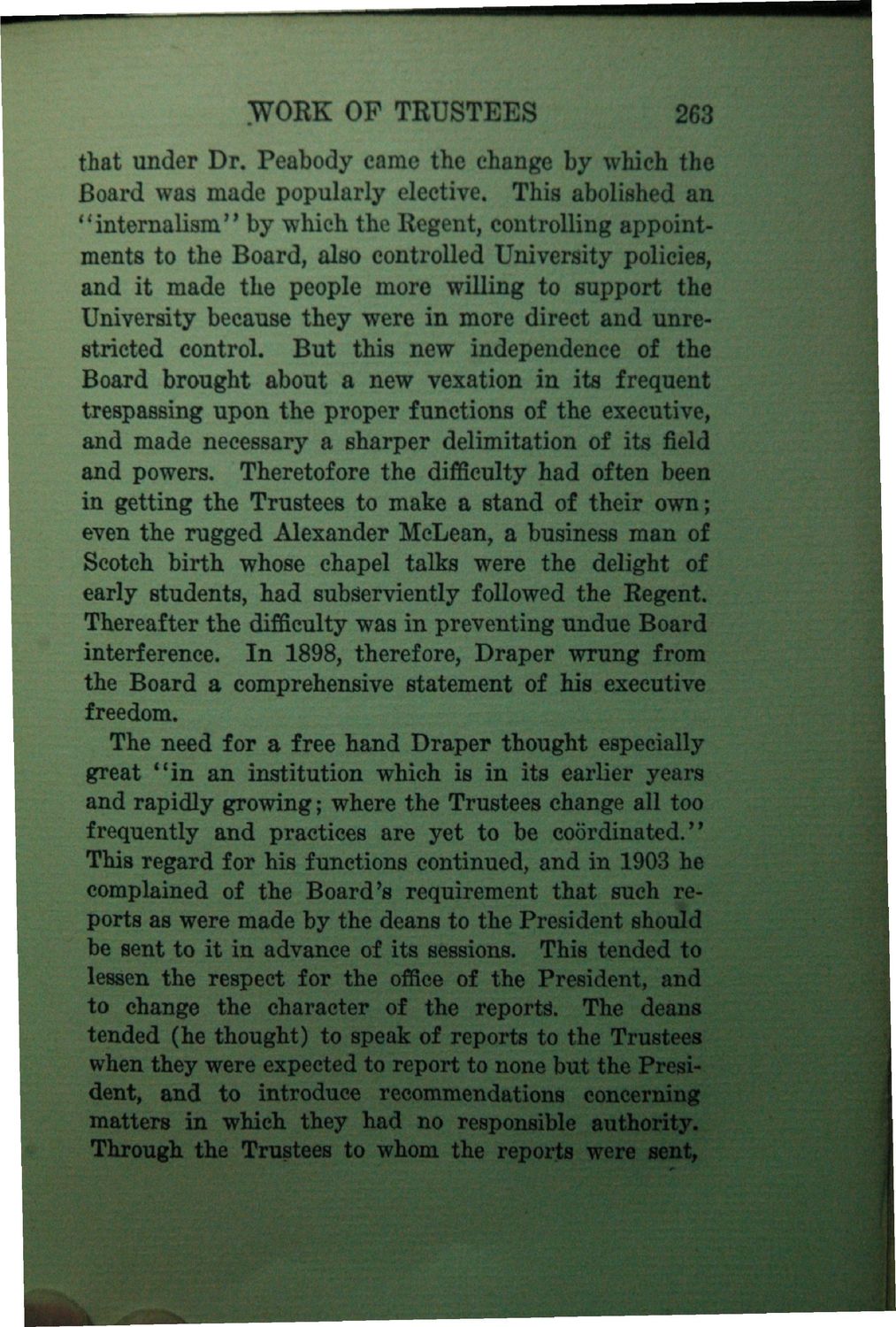| |
| |
Caption: Book - History of the University (Nevins)
This is a reduced-resolution page image for fast online browsing.

EXTRACTED TEXT FROM PAGE:
.WORK OP TRUSTEES 263 that under Dr. Peabody came the change by which the Board was made popularly elective. This abolished an "interaaliam" by which the Regent, controlling appointments to the Board, also controlled University policies, and it made the people more willing to support the University because they were in more direct and unrestricted control. But this new independence of the Board brought about a new vexation in its frequent trespassing upon the proper functions of the executive, and made necessary a sharper delimitation of its field and powers.* Theretofore the difficulty had often been in getting the Trustees to make a stand of their own; even the rugged Alexander McLean, a business man of Scotch birth whose chapel talks were the delight of early students, had subserviently followed the Regent. Thereafter the difficulty was in preventing undue Board interference. In 1898, therefore, Draper wrung from the Board a comprehensive statement of his executive freedom. The need for a free hand Draper thought especially great "in an institution which is in its earlier years and rapidly growing; where the Trustees change all too frequently and practices are yet to be coordinated." This regard for his functions continued, and in 1903 he complained of the Board's requirement that such reports as were made by the deans to the President should be sent to it in advance of its sessions. This tended to lessen the respect for the office of the President, and to change the character of the reports. The deans tended (he thought) to speak of reports to the Trustees when they were expected to report to none but the President, and to introduce recommendations concerning matters in which they had no responsible authority. Through the Trustees to whom the reports were sent,
| |